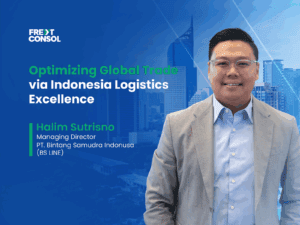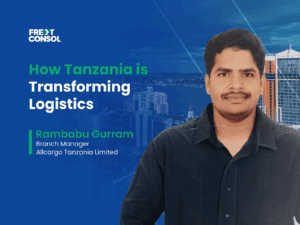By Jithu Thomas John, Managing Director, Spotlog Middle East LLC

Dubai's 2030 Land Transport Strategy is a comprehensive initiative by the Roads and Transport Authority (RTA) to enhance the emirate's transportation infrastructure, aiming to double the direct contribution of the land transport and logistics sector to the economy to AED 16.8 billion. The Commercial and Logistics Land Transport Strategy has identified 17 projects that will contribute to supporting the sector's and companies' growth, increasing its competitiveness through digital markets and platforms
The strategy seeks to double the sector's contribution to Dubai's economy, targeting AED 16.8 billion. The current contribution of Dubai's land transport and logistics sector to the economy is AED 8.4 billion.
By implementing these measures, Dubai aims to solidify its position as a global leader in transportation and logistics while significantly boosting economic growth.
Dubai’s 2030 Land Transport Strategy aims to increase technology adoption in infrastructure by 75%, focusing on innovation, efficiency, and sustainability. This initiative will transform the city's transport and logistics sector by integrating cutting-edge technologies. Plans to reduce carbon emissions by 30%, aligning with global sustainability goals.
Smart Infrastructure Development
- • Implementation of AI-powered traffic management systems to optimize flow and reduce congestion.
- • Use of IoT sensors and real-time data analytics to monitor road conditions and maintenance needs.
- • Deployment of automated toll systems for smoother and faster transactions.
Autonomous and Electric Vehicles (EVs)
- • Expansion of self-driving vehicle trials, including taxis, buses, and delivery vehicles.
- • Encouragement of EV adoption by increasing charging stations and incentives for electric vehicle users.
- • Integration of autonomous public transport to improve safety and reduce reliance on human drivers.
Digitization of Logistics and Freight Transport
- • Development of AI-based freight management systems to optimize cargo movement.
- • Introduction of blockchain technology for secure and transparent supply chain operations.
- • Use of automated warehouses and robotic systems to streamline logistics.
Smart Public Transport Systems
- • Implementation of smart payment methods like contactless cards and digital wallets.
- • Enhanced real-time tracking and mobile applications for buses, metros, and taxis.
- • AI-driven route planning to improve efficiency and reduce wait times.
Infrastructure for Future Mobility
- • Investment in Hyperloop and high-speed transit solutions.
- • Development of futuristic roadways with dedicated smart lanes for self-driving cars.
- • Use of drone-based transport systems for cargo and passenger services.
Dubai Intends to improve operational efficiency by 10%, enhancing service delivery and user experience.
This strategy aligns with Dubai's broader objectives, including the Dubai Economic Agenda (D33), which aims to position Dubai as one of the top three economic cities globally. This strategy not only enhances mobility but also reinforces Dubai’s status as a pioneering smart city, sustainable transport hub, and global leader in logistics.
By focusing on these areas, Dubai's 2030 Land Transport Strategy seeks to create a more sustainable, efficient, and technologically advanced transportation system, reinforcing the city's status as a global business hub.
Freyt Consol Blog Contributor
Freyt Consol is a global network for LCL consolidators and NVOCCs dedicated to excellence and long-term growth. We create an environment where members thrive by collaborating with trusted partners and accessing essential resources.





